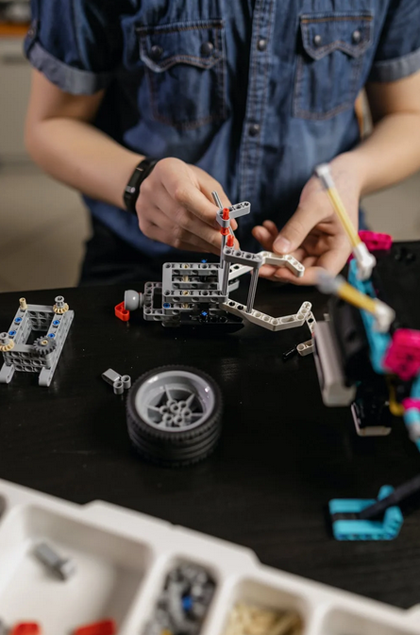How to Motivate Students to Learn Science
It's no exaggeration to say that the future of our society depends on students learning science. From the technological developments of the coming decades to solutions to climate change issues, it's the young people studying science now who will provide the answers. The problem is that students often see science as a dry, boring subject with little relevance to their everyday lives. How do you fire up their imaginations and get them to catch the "science bug"?
no exaggeration to say that the future of our society depends on students learning science. From the technological developments of the coming decades to solutions to climate change issues, it's the young people studying science now who will provide the answers. The problem is that students often see science as a dry, boring subject with little relevance to their everyday lives. How do you fire up their imaginations and get them to catch the "science bug"?
Let Your Own Enthusiasm Show
Enthusiasm has a tendency to be infectious. A teacher who's going through the motions in teaching science (or any other subject) is never going to spark enthusiasm, because they're telling their students non-verbally that the subject isn't interesting. On the other hand, if a teacher lets their own enthusiasm for the subject show clearly, their students are much more likely to become curious about what's so great and investigate for themselves.
Make It Relevant
One of the things that puts many students off science is the perception that it's all about abstract ideas, with no connection to anything practical. While the purely theoretical elements are vital for anyone who's going to become a scientist, they're not the best way to create enthusiasm in the first place. Everyone knows that Newton's inspiration for the Theory of Gravity was watching an apple fall. Encourage your students to be like Newton and think about things that surround them in their everyday lives as a way to understand scientific principles.
Give Practical Classes
In the same way, practical classes that are fun are much more likely to engage students than a lot of theory. Show them science at work — and, if it makes them laugh, so much the better. If you're teaching chemistry, for instance, show them how to make a stink or how something will explode (within strict safety limits, naturally). If you're teaching physics, demonstrate the laws of motion with a football. And, of course, biology field trips will always fire up the imagination.
Encourage Creativity
Science isn't all about learning facts, even though that's also important. Science really lives when you're coming up with ideas, so design lessons where the students can follow the methods and reach their own conclusions. For example, you could give the students the evidence for an established scientific law or principle, without telling them what that evidence led to, and ask them what conclusions they'd come to. Then compare their conclusions with the established ones, making sure to emphasise the positives of their conclusions, even when they're wrong. This will help them experience directly what the scientific method is all about.
Invite Scientists to School
Scientists to School
Very few things create more enthusiasm than to introduce students to someone who's made it in the subject and can talk passionately about their own experiences. Ask the scientists to tell their story, perhaps relating their achievements to what they learnt in school. This will show your students just what relevance your classes have and what they can lead to.
Supplement School Science with a Tutor
All this can be achieved in science classes at school, but that doesn't mean it will be. Even with a good teacher, the need to teach a large class might make some of these methods difficult. If your child isn't motivated by science lessons at school, the answer might be to hire a private tutor in the subject. Because they'll be able to focus on your child (or perhaps a small group of children, if you want to collaborate with other parents), the tutor will be in a much better position to structure the lessons in ways that will fire up the student's enthusiasm.
Whether you're a science teacher looking for ideas or a parent whose child isn't motivated by school science lessons, register with TutorExtra and explore our resources.


